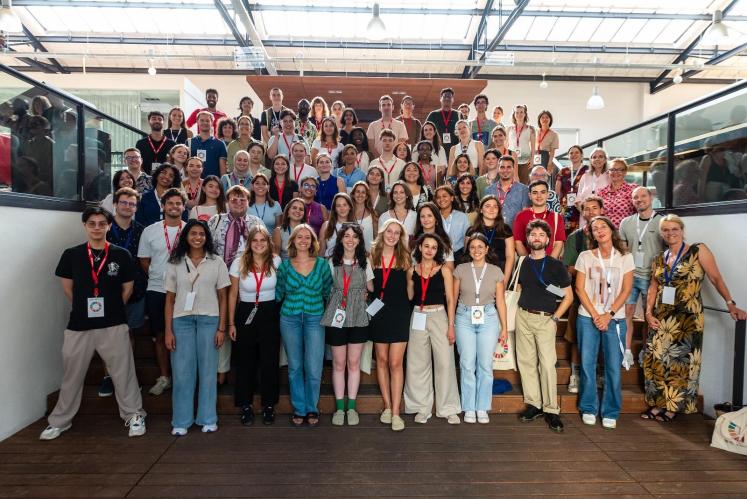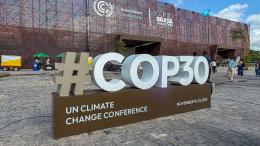It’s hard to describe what one academic year in the Master of Public Policy and Human Development (MPP) truly feels like. If I had to try, I would say: intense, eye-opening and deeply transformative. From our first day at UNU-MERIT and in Maastricht, we knew the journey would be demanding. But I couldn’t fully anticipate the friendships, the resilience, and the many shared moments that would come to define it.
Since September, as MPP students, we have engaged deeply with global policy challenges, from rethinking social protection systems to understanding how to govern emerging technologies and exploring the dynamics of international organisations. The pace was undoubtedly fast, the workload heavy, yet the experience was profoundly enriching.
From theory to tools: key skills and coursework
The programme's strong academic foundation and focus on practical, policy-relevant skills made it especially valuable. In the first semester, we were introduced to the core of public policy through courses like Public Policy, where we learned how to structure complex policy problems, analyse actors and institutions, and critically apply different theories to real-world cases. In Public Economics, we explored the role of government in redistribution and public spending, examining policies through the lenses of equity and efficiency.
These conceptual foundations were paired with rigorous research training in Methods for Policy Analysis and Advanced Methods for Policy-Relevant Research, where we developed a solid grounding in qualitative and quantitative research. From understanding how to design research questions and apply theoretical frameworks, to using tools like STATA for regression analysis or conducting interviews and thematic analysis, we were constantly pushed to apply what we learned.
In Public Policy Analysis, we brought all of this together by conducting impact evaluations and using various methods to assess the effectiveness of existing policies and design new ones.
What really made a difference was that all courses were delivered through the Problem-Based Learning (PBL) approach, which challenged us to work collaboratively, engage in critical discussion, and take ownership of our learning. It wasn’t always easy, but it was consistently engaging and growth-oriented.
Specialisations and real-world exposure
In the second semester, we dove into our chosen specialisations. As a student in the Governance of Innovation track, I explored the intersection of innovation policy, research ecosystems and digital transformation. Other tracks focused on Migration Studies, Risk and Vulnerability, Global Governance for Development, and Social Protection, each offering a unique lens on public policy in practice.
One of the year’s highlights was our study trip to Geneva, where we visited organisations like the World Intellectual Property Organisation (WIPO) and received hands-on training. Being in the same rooms where global decisions are made gives us a clearer view of the future policy landscape we hope to shape.
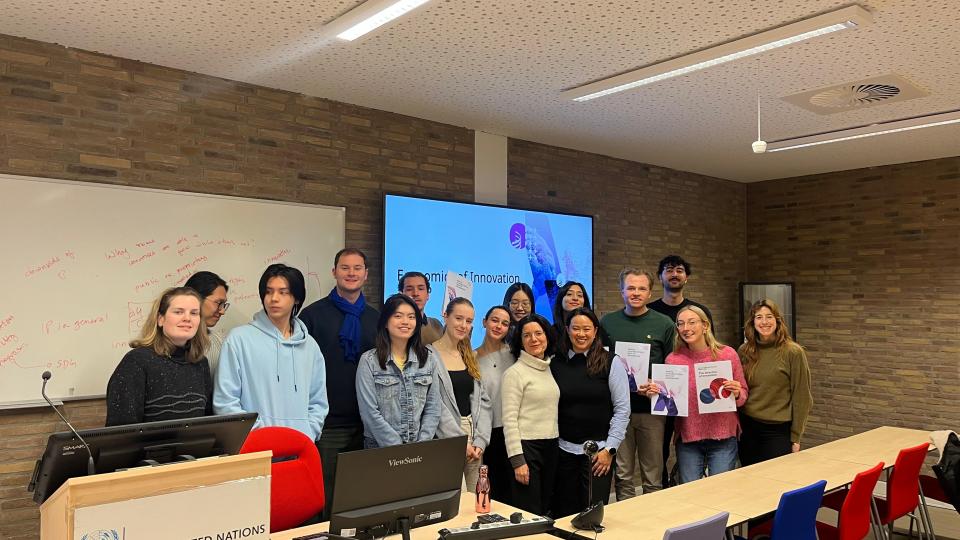
Creating the MPP community through diversity and dialogue
Beyond lectures and assignments, 2024-2025 was marked by student-led initiatives and moments of connection. From the In-House Conferences to sessions with alumni, UNU-Merit and the students' association Demos created a dynamic academic community. With students from over 35 countries, the MPP cohort was as diverse as it was motivated. In every discussion and moment together, whether academic or informal, we brought different cultural perspectives, professional experiences and lived realities into the room. This diversity wasn’t just something to celebrate. It fundamentally shaped how we understood the policy problems we were studying.
Together, we built a culture of mutual respect and active listening, even when we disagreed. The MPPeers were also the ones taking initiative to build this community. A standout memory was the thesis camp in Budapest and Charleroi, where a small group of students came together to work on our theses in a new environment. These informal initiatives reminded us that learning also happens outside the classroom, in discussion, exploration and shared experience.
Throughout the year, we also participated in extracurricular events like the Run for Cancer, student-led workshops and content creation through the MPP student ambassador account, which I had the honour of managing.
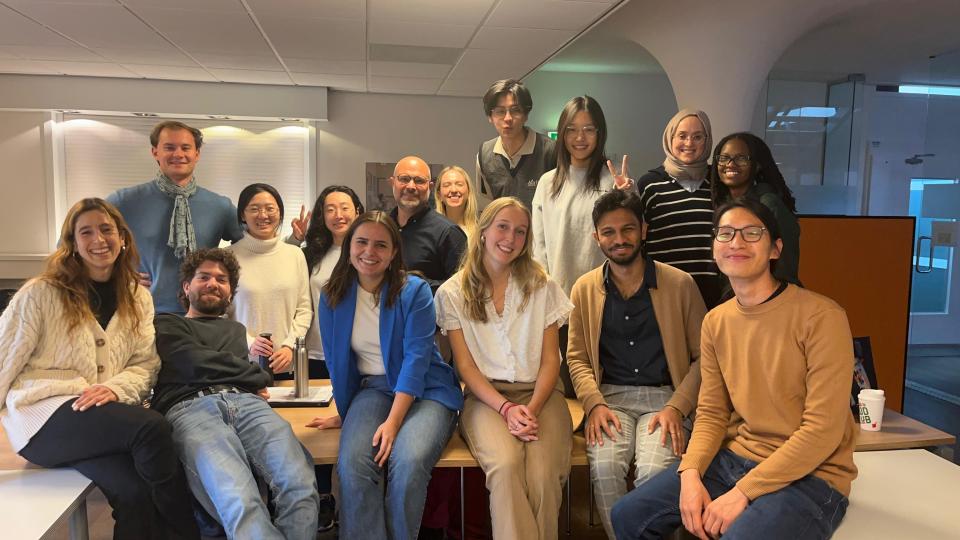
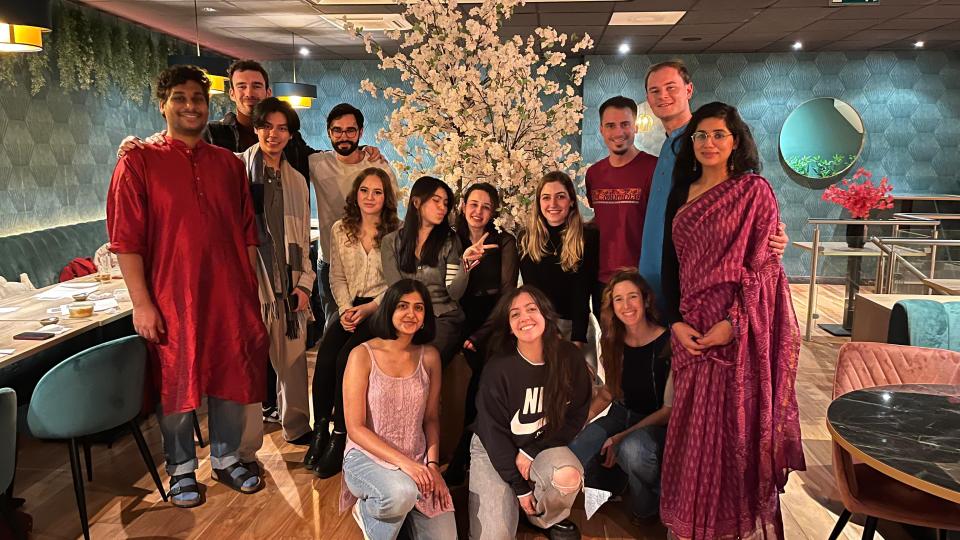
Managing intensity and finding balance
The programme also taught endurance and self-awareness. Balancing coursework, group projects, deadlines, thesis and life abroad was no small task. Many of us worked part-time, navigated personal challenges, and learned to manage our mental health.
One of the most valuable skills I gained was listening to my body and mind while staying committed. Whether it was group support in the cube, informal peer mentoring, or simply acknowledging when we needed to stop and rest, these moments reminded us that perseverance includes knowing when to pause.
Closing a chapter
Now that the academic year is ending, it’s difficult to say goodbye. We leave Maastricht with new knowledge, lifelong friendships, and a more critical, yet hopeful, view of the world. The MPP doesn’t just prepare you for a career in public policy. It teaches you how to ask better questions, navigate complexity and contribute with empathy, while pushing you outside your comfort zone.
To the UNU-MERIT staff, our professors, student advisors, and fellow MPPeers: thank you for shaping this year with compassion, insight and support. Wherever we go next, this experience will remain part of who we are and how we work to change the world around us.
Suggested citation: Margarida Leite Magalhães., "A Year in the MPP: Growth, Connection and Everything in Between," UNU-MERIT (blog), 2025-08-05, 2025, https://unu.edu/merit/blog-post/year-mpp-growth-connection-and-everything-between.

